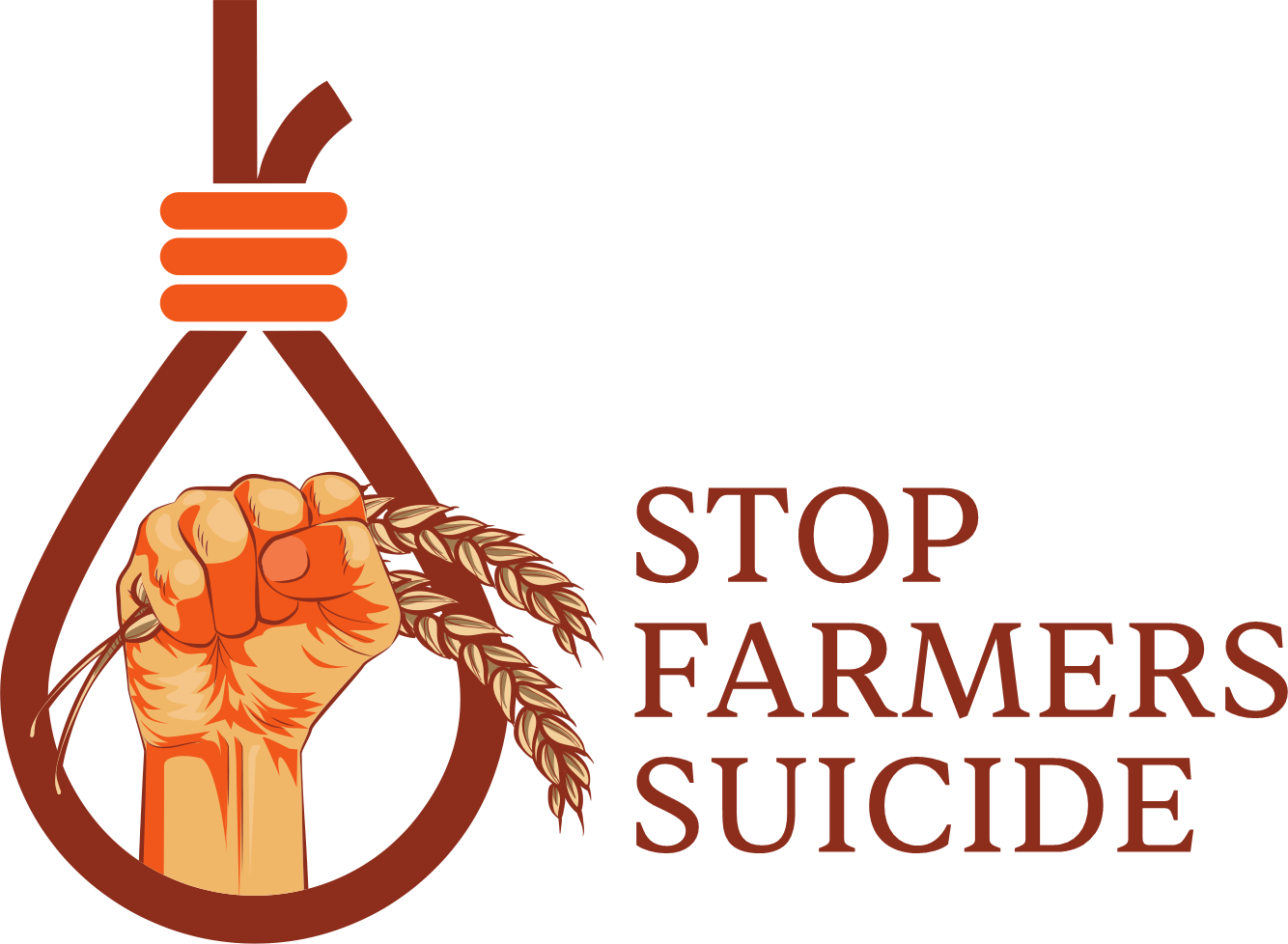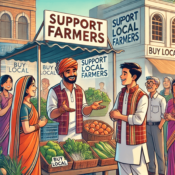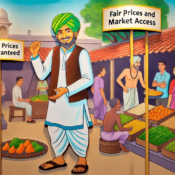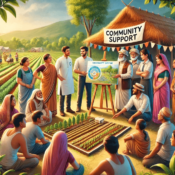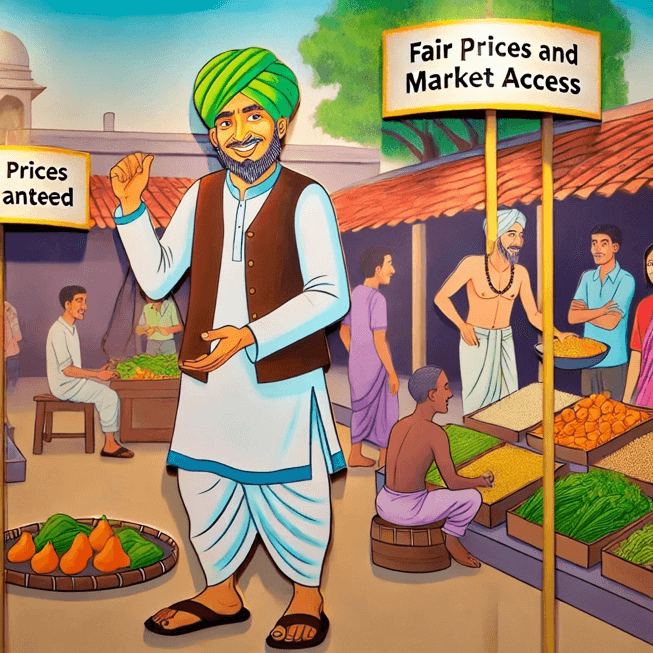
The Importance of Fair Pricing and Market Access for Farmers
Farmers play an essential role in feeding the world, yet many face immense challenges when it comes to the financial rewards of their hard work. One of the most significant obstacles they face is unfair pricing and limited market access. Despite the critical role farmers play in the economy and society, many find themselves trapped in a cycle of low income, unable to receive fair prices for their produce or access markets that offer competitive returns. The consequences are far-reaching—affecting not only farmers’ livelihoods but also the sustainability of the agricultural sector. Ensuring fair pricing and market access is therefore vital for improving farmers’ well-being, reducing poverty, and promoting sustainable agriculture.
The Struggles of Farmers in the Market
Farmers often find themselves in a vulnerable position within the agricultural value chain. They invest significant time, labor, and resources into growing crops or raising livestock, yet they are frequently at the mercy of middlemen and market intermediaries who set prices that do not reflect the true value of their work. This system leaves farmers with little bargaining power, resulting in a situation where they often receive only a fraction of the final price consumers pay for food products.
In many developing countries, farmers have limited access to market information, making it difficult for them to make informed decisions about when and where to sell their produce. They also often lack access to transportation networks, storage facilities, and modern technologies that would allow them to reach higher-value markets or sell at more competitive prices.
The inequities in pricing and access to markets are further exacerbated by global supply chain dynamics. Large retailers and multinational food companies frequently dominate agricultural markets, setting prices that favor their own profits rather than the welfare of farmers. This imbalance means that while the cost of food for consumers may rise, farmers continue to struggle with low earnings, making it hard for them to reinvest in their farms, pay off debts, or meet basic living expenses.
The Role of Fair Pricing in Farmer Welfare
Fair pricing is not just a matter of getting a better price for a product—it is a fundamental aspect of achieving economic sustainability for farmers. Fair prices allow farmers to recover the costs of production, pay for labor, invest in future crops or livestock, and sustain their families. Without fair pricing, many farmers are forced into a cycle of debt or are unable to provide for their basic needs, let alone improve their farming practices.
Farmers’ inability to access competitive prices for their products often means that they must rely on high-interest loans or moneylenders to fund their operations, which can result in insurmountable debt. This financial pressure often leads to a sense of hopelessness and despair, which is one of the factors contributing to farmer suicides in many parts of the world. By ensuring that farmers are paid fairly for their products, governments, NGOs, and the private sector can help break this cycle and contribute to improving their financial stability.
Furthermore, fair pricing is essential for promoting sustainable agricultural practices. When farmers are paid well for their products, they are more likely to invest in better farming techniques, improve soil health, and take care of their land, knowing they will receive a fair return for their efforts. Conversely, low prices discourage farmers from reinvesting in their farms, leading to unsustainable practices such as overuse of chemicals, soil degradation, and deforestation.
The Importance of Market Access
While fair pricing is crucial, market access is equally important. Farmers need access to diverse markets—local, regional, national, and even international—in order to sell their products at the best possible prices. This allows farmers to avoid over-reliance on a single buyer or middleman, giving them greater bargaining power and the ability to reach a broader customer base.
In many rural areas, farmers face geographic isolation, which limits their ability to access markets where they can fetch better prices for their products. Poor transportation infrastructure, lack of cold storage facilities, and limited access to digital platforms further hinder their ability to sell directly to consumers or larger distributors. By improving infrastructure, building cooperatives, and providing market linkage support, governments and NGOs can help farmers access broader and more profitable markets.
For example, in many parts of East Africa, farmers have benefited from digital platforms that allow them to sell their products directly to buyers or consumers. These platforms help farmers access real-time price information, compare prices across different markets, and negotiate better deals. Additionally, farmer cooperatives allow small-scale farmers to pool their resources, increase their bargaining power, and access larger markets that would be difficult to reach individually.
In some countries, governments have also introduced direct-to-consumer models, where farmers sell their produce in farmer markets or through online platforms. These initiatives cut out intermediaries, ensuring farmers receive a higher proportion of the final price and fostering stronger connections between consumers and the people who produce their food.
The Role of Fair Trade and Certification
One effective way to ensure fair prices and market access for farmers is through fair trade certification. This certification ensures that farmers receive a fair price for their products and work under decent conditions. Fair trade also encourages environmentally sustainable practices and supports community development projects.
Fair trade systems have been particularly successful in helping farmers in developing countries, where they can access premium prices for their products, such as coffee, cocoa, or cotton. These higher prices not only improve farmers’ financial stability but also help them invest in education, healthcare, and other community development initiatives. By supporting fair trade, consumers play an essential role in improving the livelihoods of farmers and promoting more ethical and sustainable agricultural practices.
Conclusion
Fair pricing and market access are essential for creating a sustainable and equitable agricultural system. Farmers must be paid fairly for their hard work, have access to profitable markets, and be empowered with the knowledge and resources to make informed decisions about their production. Governments, NGOs, and the private sector all have a role to play in creating policies and programs that ensure farmers can access fair prices and a diverse range of markets. By doing so, we can help improve the livelihoods of farmers, reduce poverty, and ensure that agriculture remains a viable and sustainable livelihood for generations to come.
